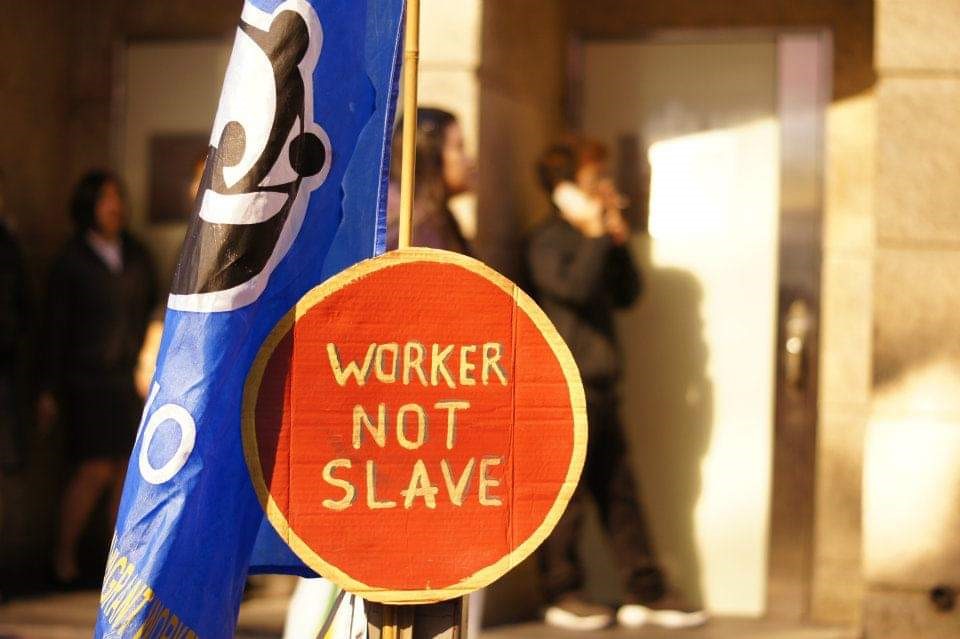This year marks eight years since I returned home after over a decade of working as an Indonesian migrant worker, specifically as a domestic helper, in Singapore and Hong Kong. In the last eight years, I have done things that I could only dream of before: getting a college degree, a teaching job, and living like the average person who commonly walked the earth.
At least that's how I thought. Throughout these eight years I had hopes people would start to have a better view of those who work as migrants, particularly those who work as domestic helpers, often known by the Indonesian abbreviation TKI (Tenaga Kerja Indonesia).
Initially, I was reluctant to return to Indonesia. The reason I used to convince myself to return to Indonesia was that I wanted to pursue my education. By studying in Indonesia, I presumed people would treat those who have a professional background similar to mine equally. Not as a part of minorities in a foreign country. Stubbornly, I wanted equal treatment and equal opportunity. This presumption, somehow, is proven as debatable. At least on several occasions, which might be just me over-reacting. After all, what kind of societal decline are we experiencing, when the world is so aflame with movement like Black Live Matters and Me Too, but we still treat someone as less of a person compared to others merely based on profession.
Also read: Japan’s Aging Population Means More Elderly and Migrant Workers in Job Market
Nevertheless, there was this time when a respected person from the ivory tower of academia admitted that she felt uncomfortable when she landed in a country famous for being Indonesian migrant worker's destination. She somehow felt that people in that country gave the stares that made her feel as if she was like most of the Indonesian women who landed there, a migrant worker. She did add that migrant workers job was not something to be ashamed of, but I still squirmed in my seat among other graduate students. Is it that disgraceful to be seen as a migrant worker? Then, what if you are a migrant worker?
Another time, in another small academic environment, someone expressed her distaste of visiting Hong Kong because it's filled with Indonesian migrant workers, which makes her feel that people would see her as one too. So uncomfortable was her feeling that she found it necessary to dress up to the nines, along with a branded handbag whenever she visited the country, so people would not mistake her from a migrant worker.
Also read: Underreported and Un-viral: The Plight of Indonesian Migrant Workers
Forget that it's not that easy to tell a counterfeit from original branded bags in Hong Kong, for crying out loud. All it takes is a visit to the Ladies Market in Mongkok and its well-known counterfeit goods. Also, those who carry the ultra-expensive bags would not take the MTR or busses and mingle with the masses. People just use working bags for work and special bags for a special occasion. I think it's called being practical.
Now and then, I wonder how other migrant workers who have returned to Indonesia were treated in various environments. Do they fit right back into their birth society again after years of working abroad as migrant workers? Do they eventually feel at home in their country, or do they feel a sense of unhomeliness instead? Do they sense that they are being looked at differently regardless of their merit? Do they still receive harmless but not so kind remarks now and then?
Since 18th December is International Migrants Day, I hope those who have returned to Indonesia and those who plan to will feel at home again in this country, eventually. Sometimes, it's understandable to squirm in your seats in the middle of a meeting, a seminar, a public lecture, classes, an office, or a school reunion. Smile politely and bear with it a little. Then you can have fun smothering your laugh at awkward apologies now and then, after having told the offending people that you used to be a migrant worker. They might offer it. It's almost entertaining in a twisted kind of way when they do.
Also read: Asian Women Migrant Workers Offers Food to Cure Homesickness in Kobe Restaurant
Don't be discouraged in returning home. Of course, things will not be easy once you land in Indonesia. If you are lucky, there are still those decent souls who acknowledge you based on what you are capable of, equal to every other people. They might not say it out loud, only patting you on your shoulder as a sign of encouragement, or sending you a news article, a book, or things of your interest. These people do exist and I have met them.
Hopefully, eventually, there will be more people who see us as no less than other people just because our profession is less desirable in society. And let’s not forget that, just like every other job in this world, its benefits extend beyond us who have lived it. It oils and pushes these giant beasts called society and economy.







Comments